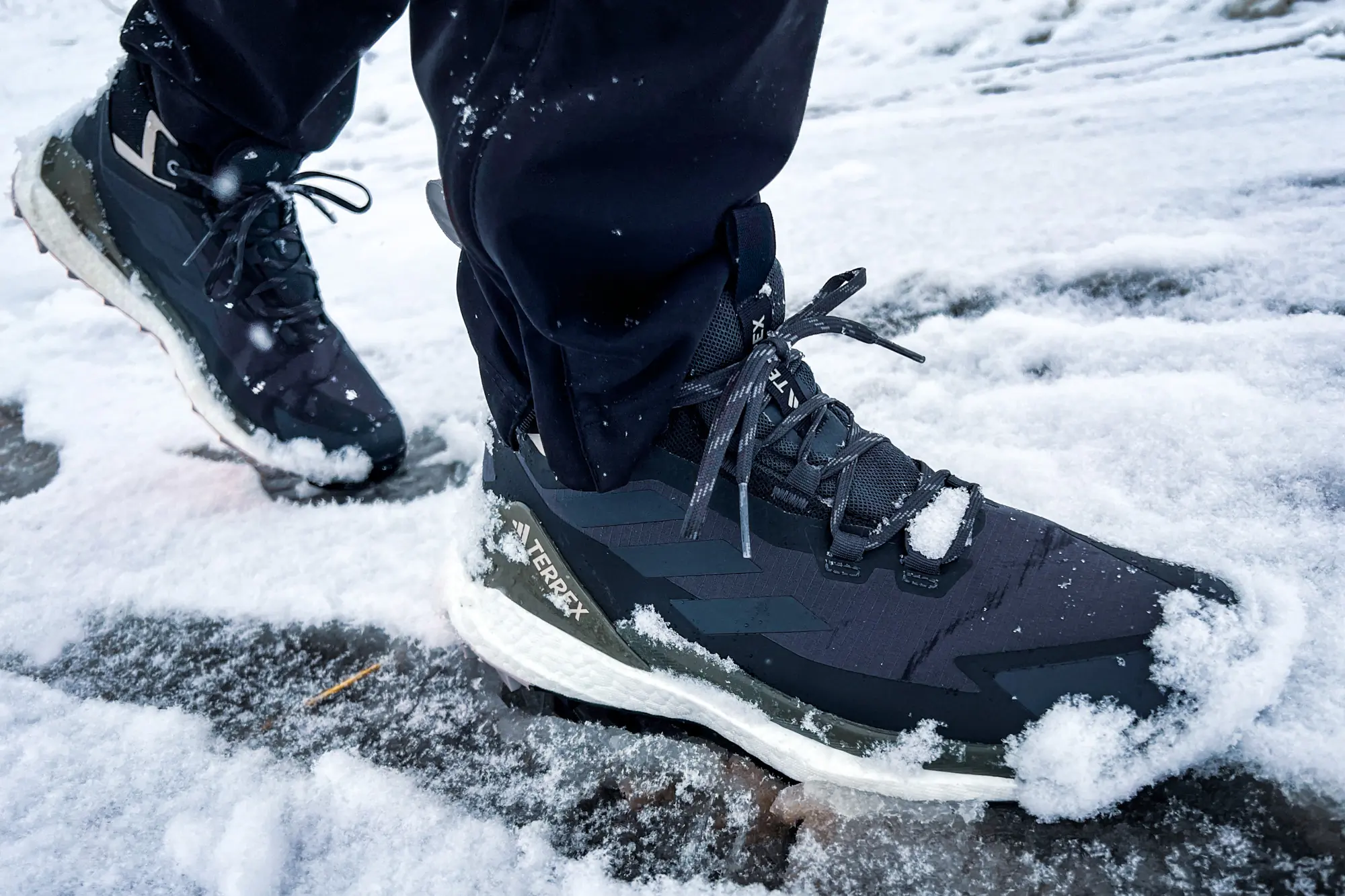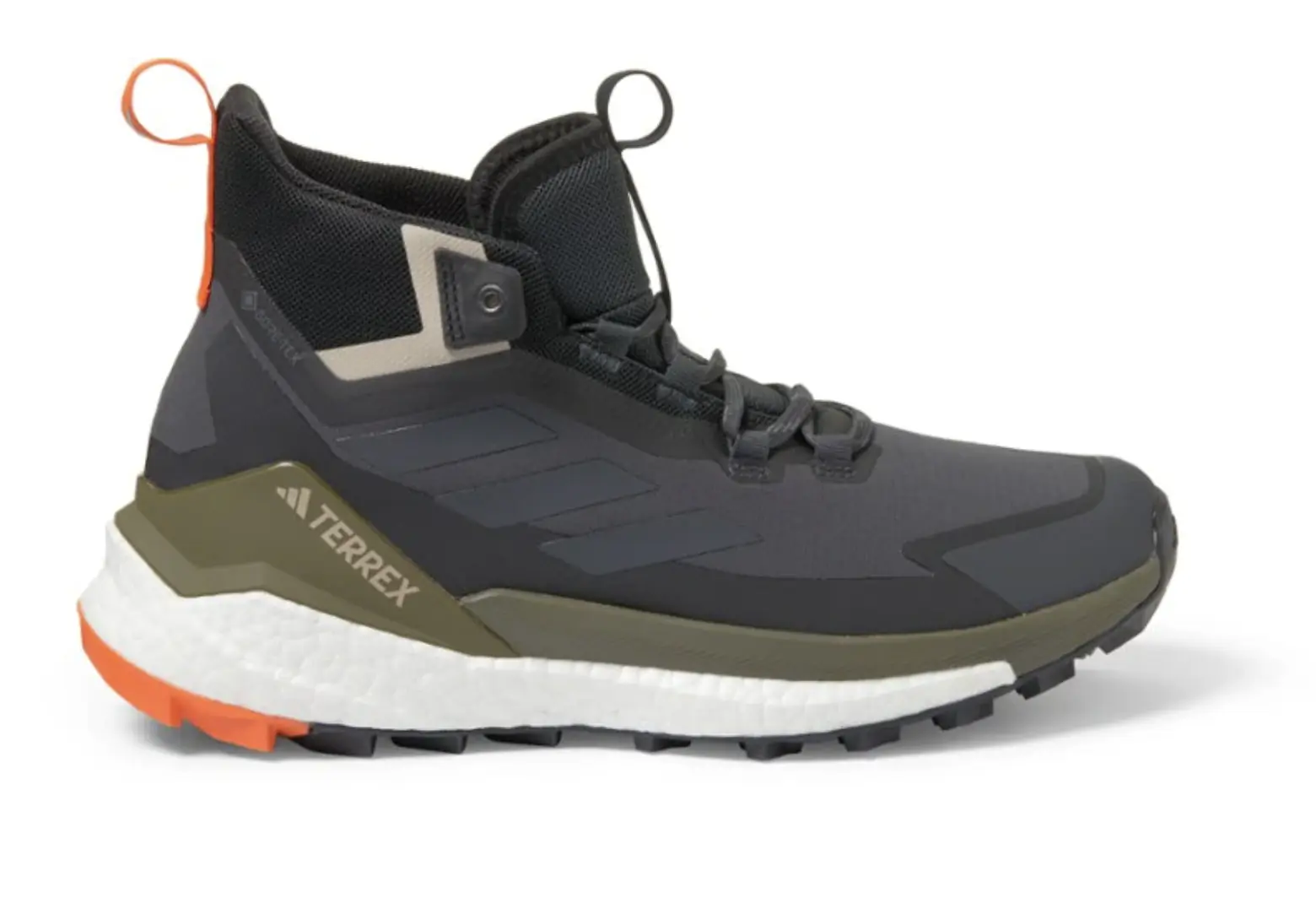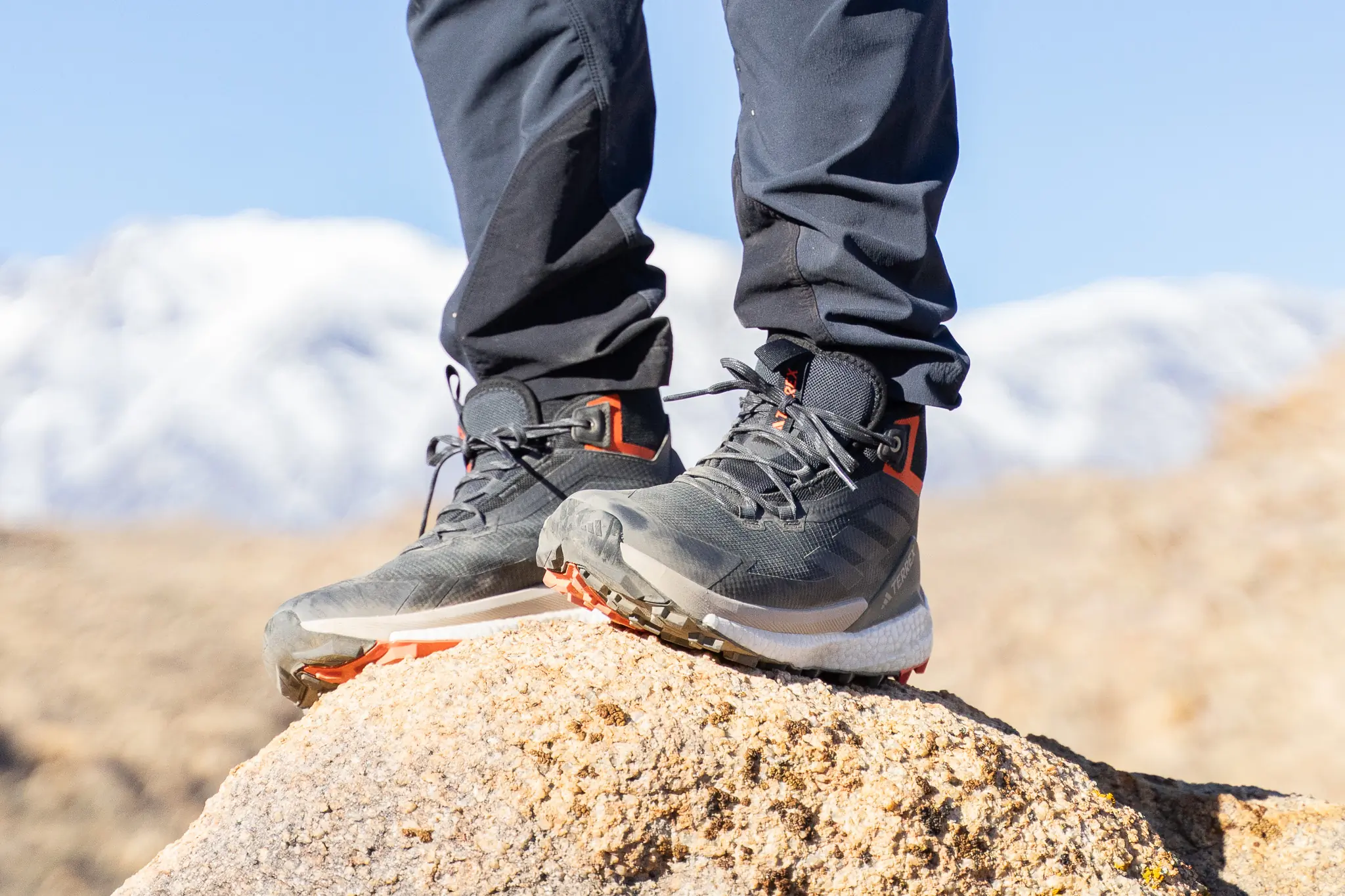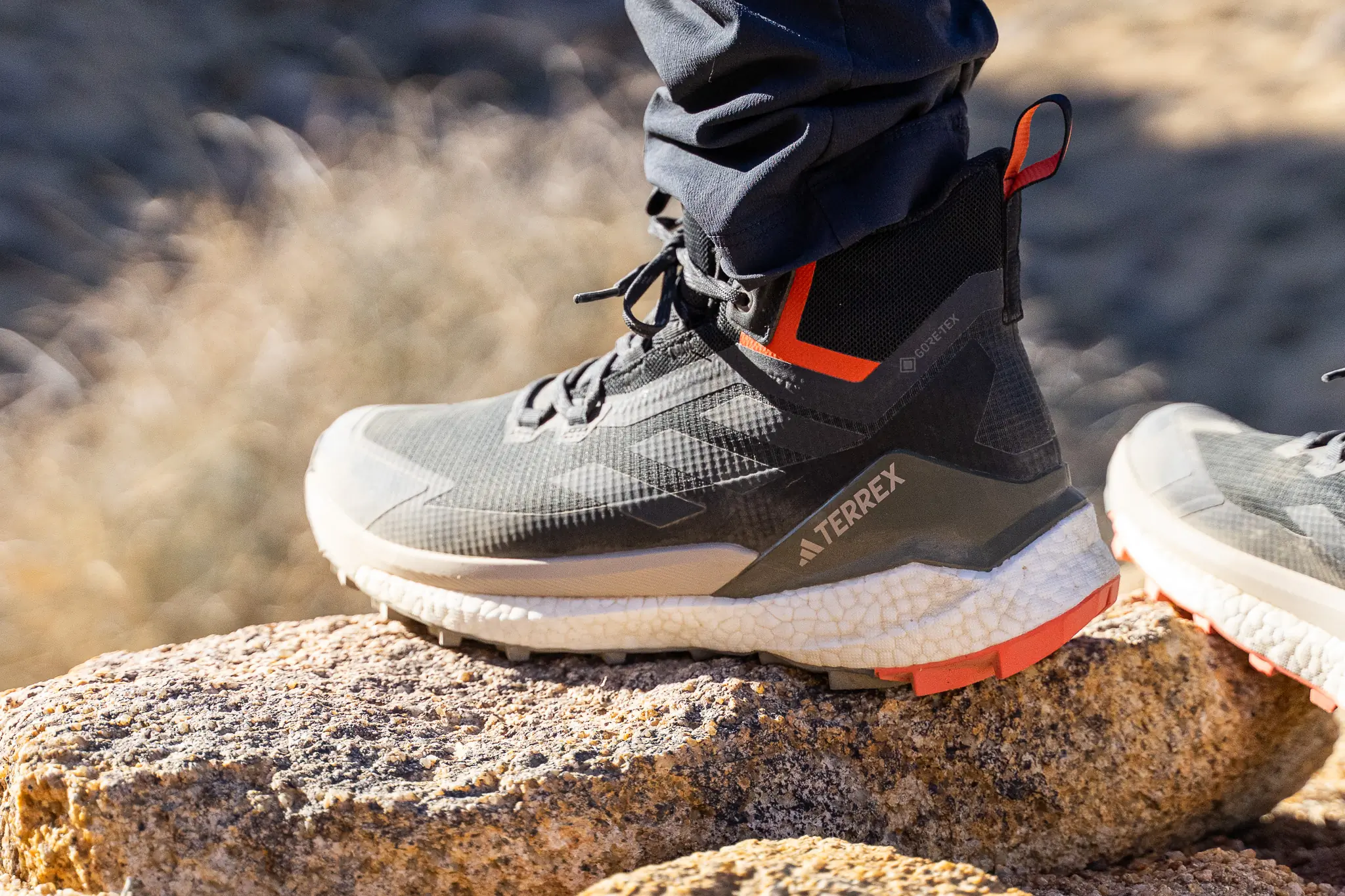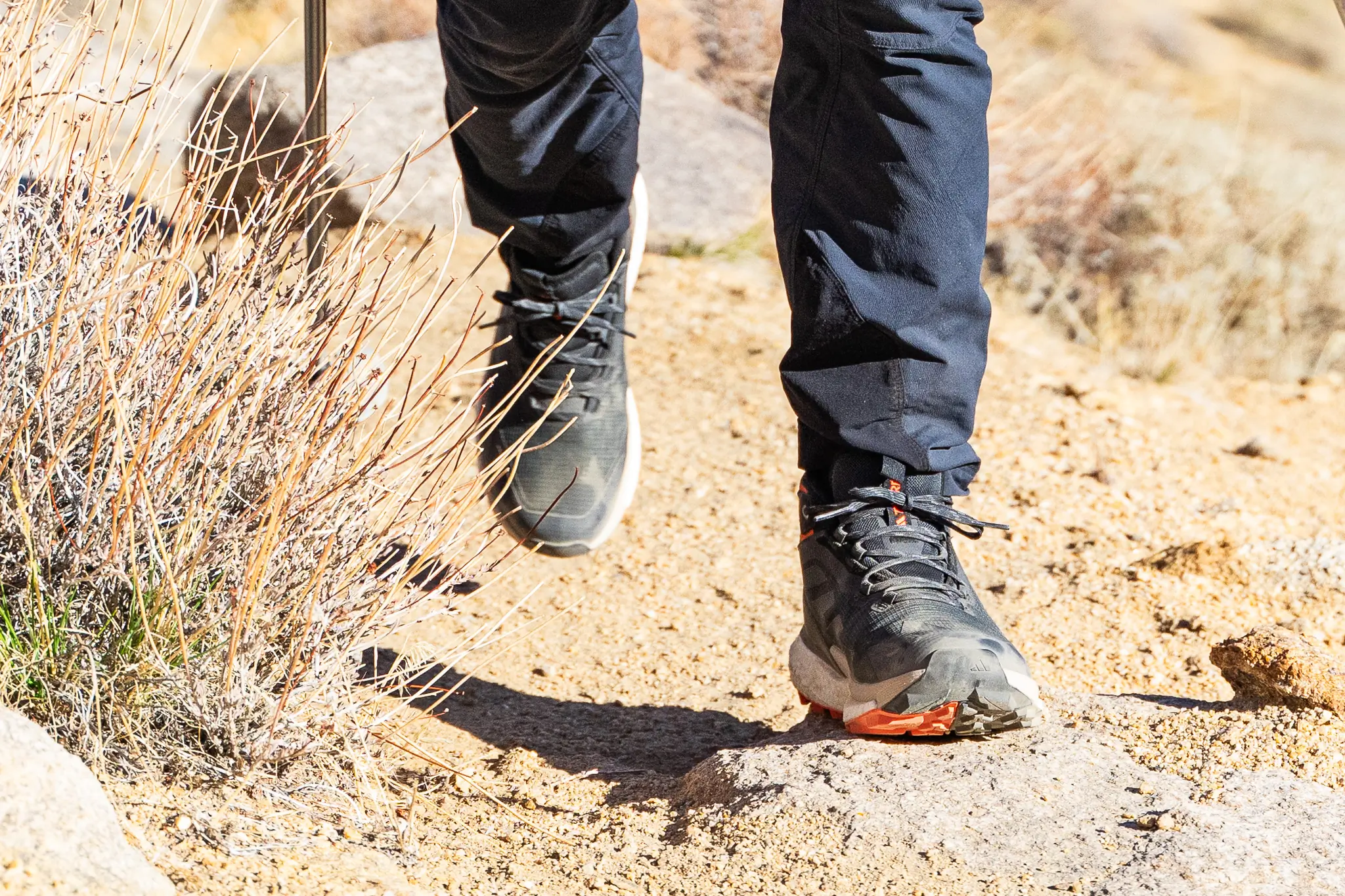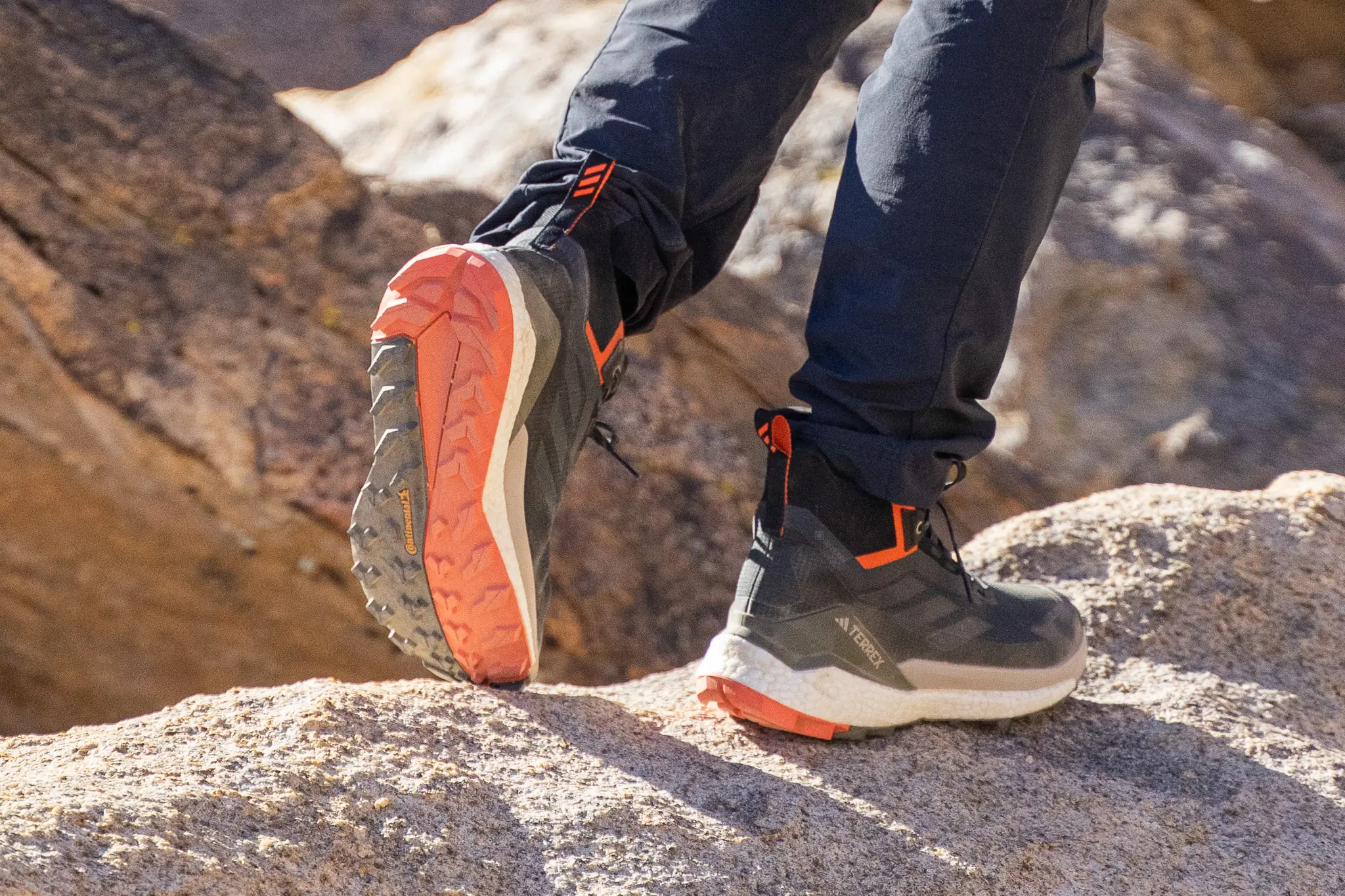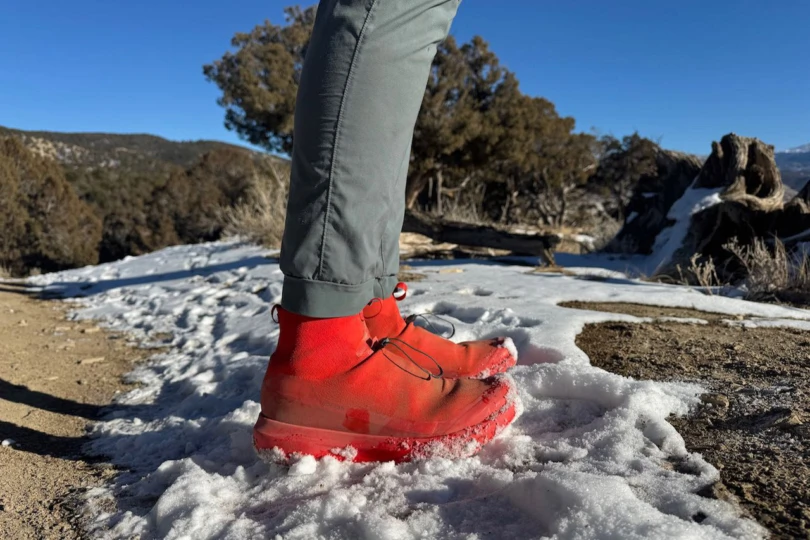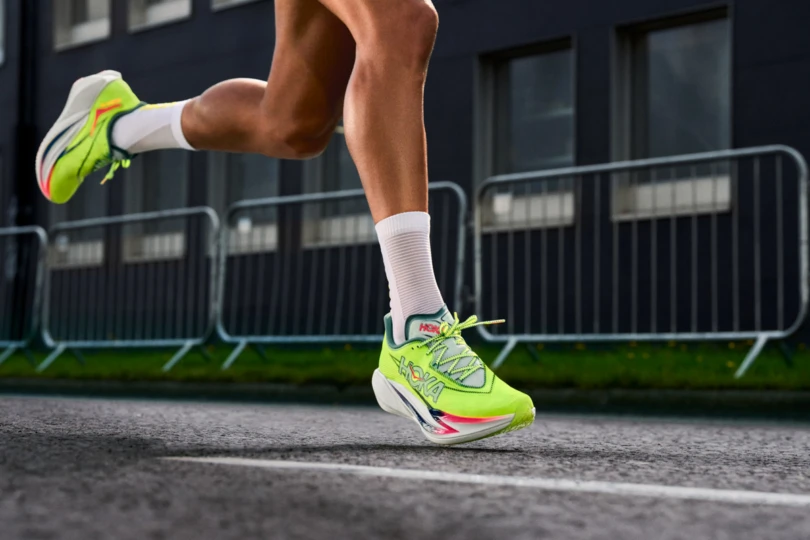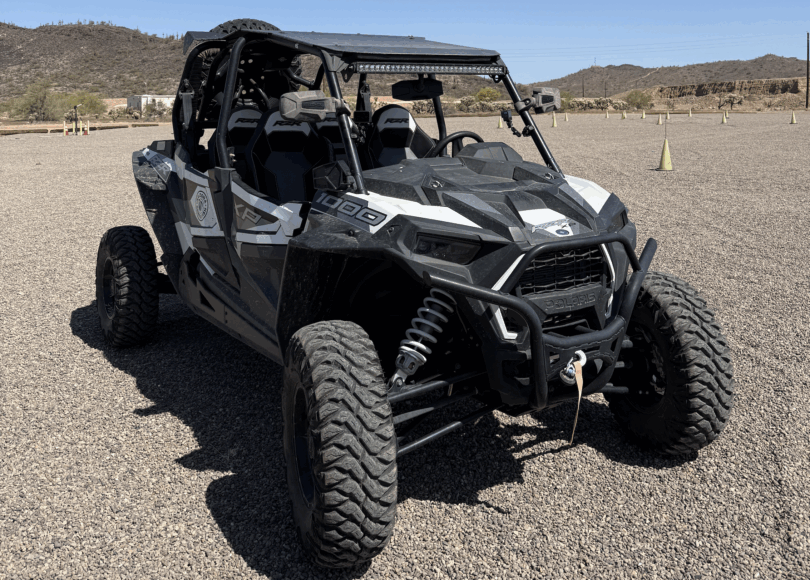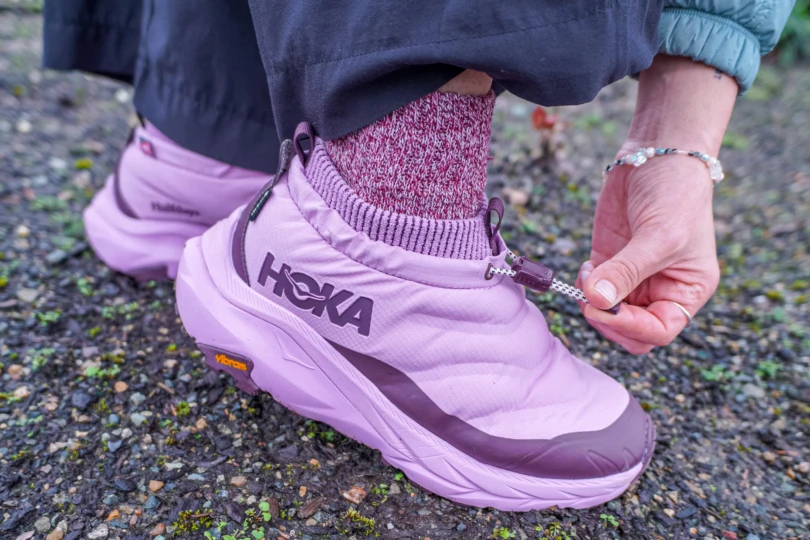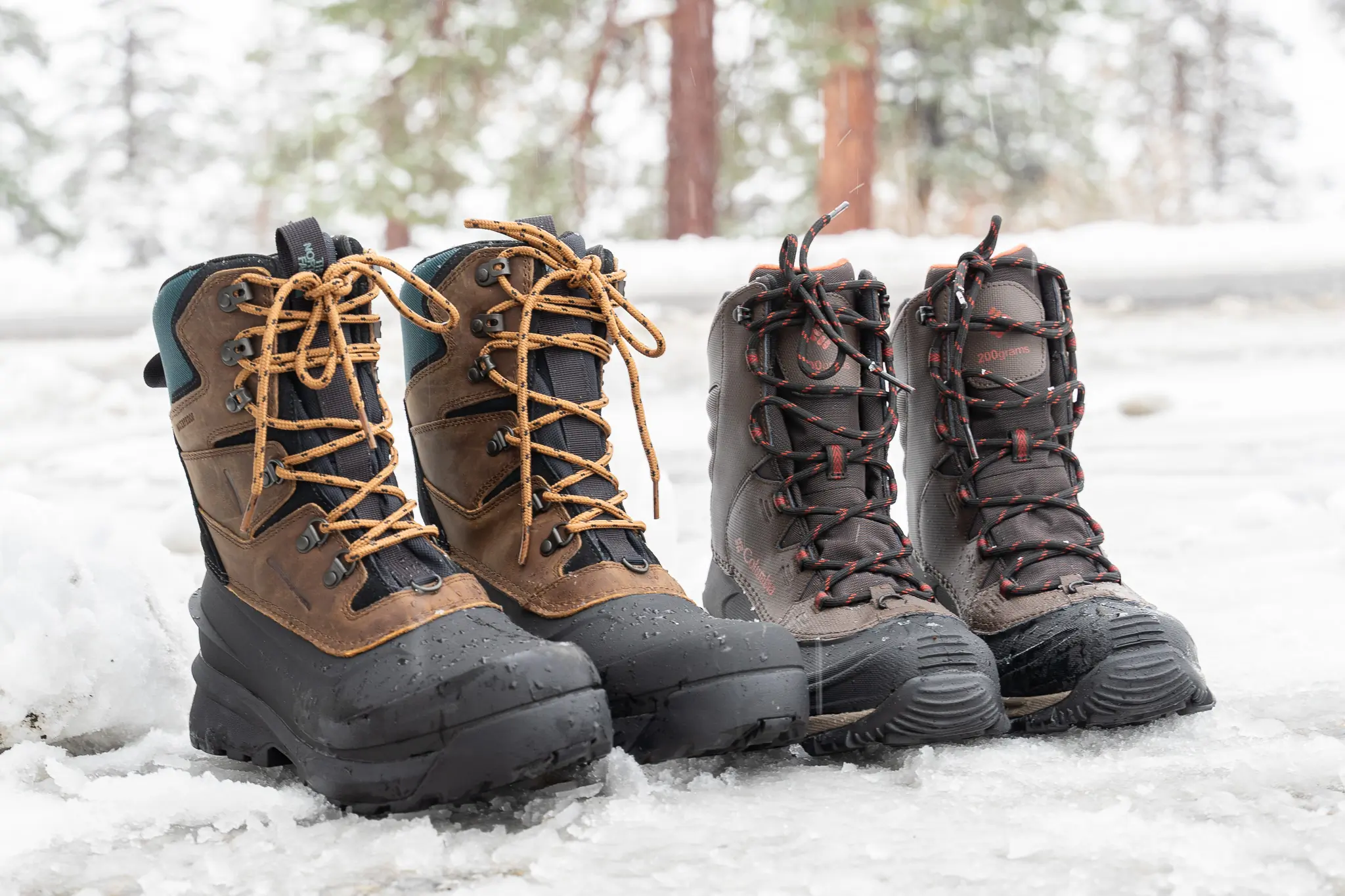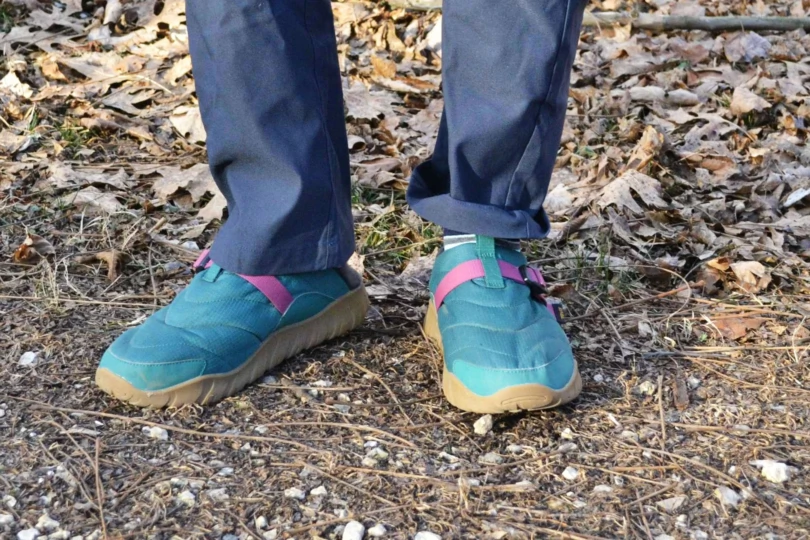The storm was in the news for 2 weeks before it hit Colorado. But if you were unplugged over the last few days, the short version is we just got a massive pile of wet, sloppy snow. And like the U.S. Mail, my dog mandates that “neither snow nor rain nor heat nor gloom of night stays these couriers paws from the swift completion of their appointed rounds.”
adidas recently sent me the TERREX Free Hiker 2.0 GORE-TEX hiking shoes. And while they’re not really running shoes, once I looked out the door at the ankle-deep mush, I grabbed them and thought, “These shall suffice.”
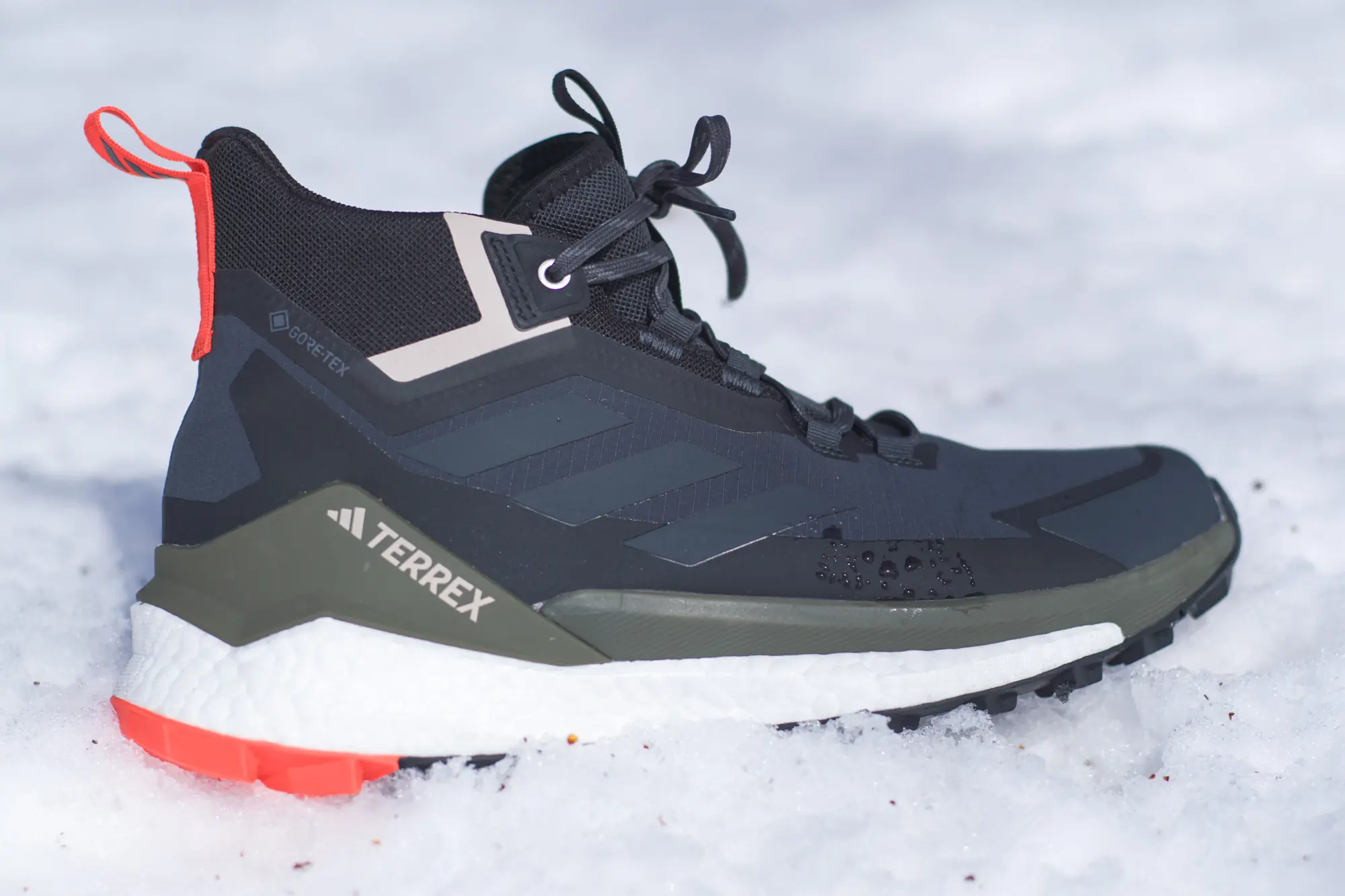
Remarkably, they did. And why not? Hikers have gravitated to trail running shoes for years as light, fast alternatives to hiking boots. Why not take these fast, light hiking shoes for a run? Indeed, they are very close to running shoes.
In short: The TERREX Free Hiker 2.0 GORE-TEX is a very light hiking boot. Or seen conversely, they’re a slightly heavy, tall trail running shoe. The hybrid design works well. But much like any hybrid product, it’s not as good at any single activity as more focused tools.
Shopping for hiking shoes? Check out our guide to the best hiking shoes of 2024.
- Weight: 15.5 oz. (size 9)
- Waterproofing: Yes
- Upper material: Synthetic
- Width: Standard
Pros
- Fast
- Very waterproof
- Good traction
- Lighter than leather boots, more supportive than running shoes
Cons
- Mid-height will restrict ankles compared to low-tops
- Less supportive than true boots
adidas TERREX Free Hiker 2.0 Review
Frankly, my first impression of the TERREX Free Hiker GORE-TEX was not great. I laced it too tight, and it bit into my ankle during my first hike. But I reset on the second hike, found the lacing sweet spot, and settled into a comfortable, somewhat supportive hiking shoe that gave me good ankle mobility.
The TERREX Free Hiker 2.0 is a mid-height hiking shoe. I did hike in this boot a little for this review. But long-range hiking isn’t exactly in the cards right now, as it’s winter in Colorado. So far, my hikes in this boot have amounted to a few miles of snowy treks around Summit County, sticking to social trails that are firm enough to support my weight over the several feet of snow.
But down in Denver, the Free Hiker showed it has deeper chops than the brand claims.
Over the last 4 days, I took this shoe running in weather ranging from bone dry to complete slush chaos. And I was shocked at how well it moved for a waterproof, mid-top boot.
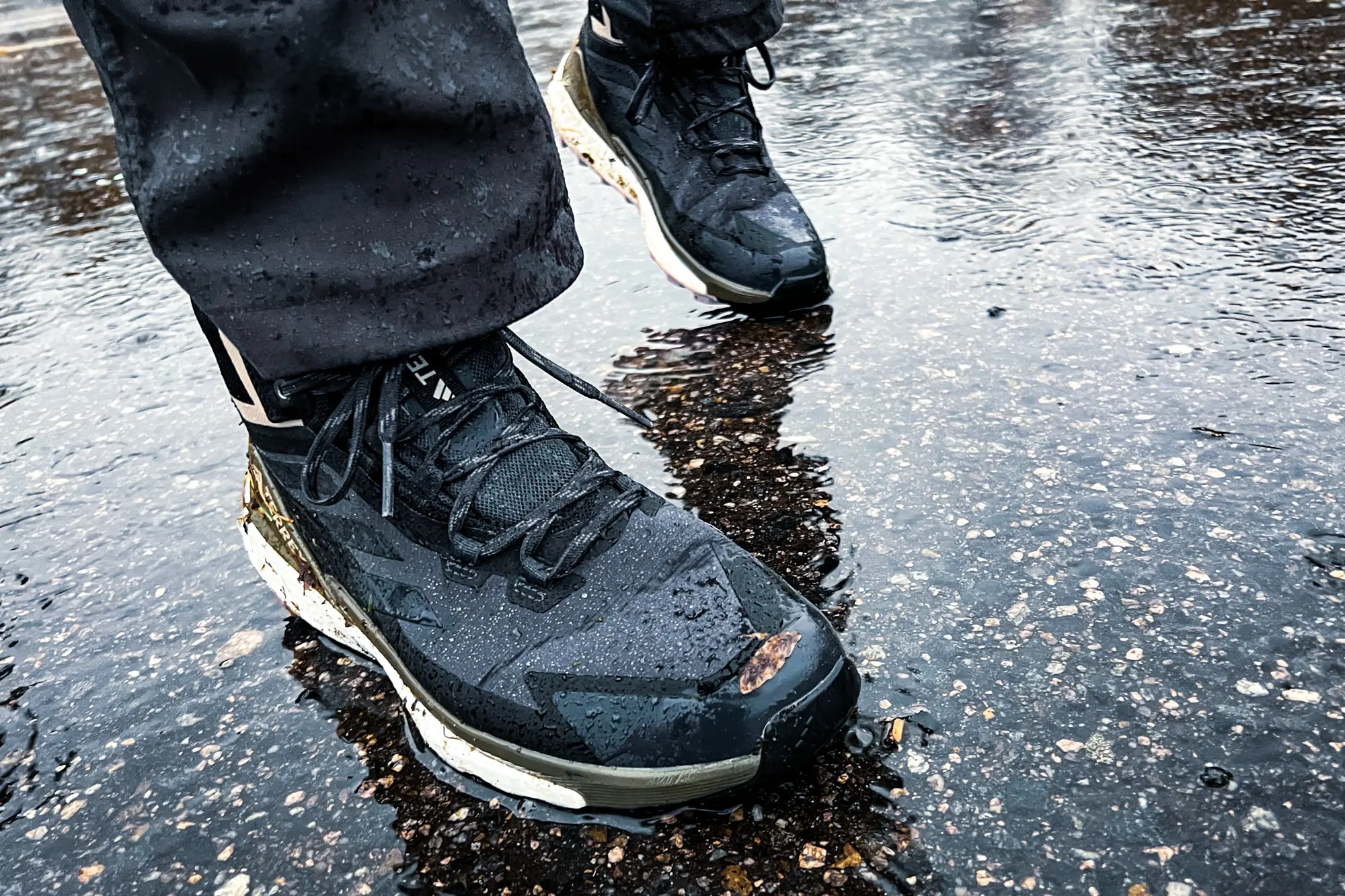
Starting from the bottom, the Continental rubber outsole provides good traction. The treads are moderately aggressive at about 5 mm and grab snow and slush well. On dry pavement or rock, they are slightly chunky but still move well, thanks to the flexibility of the sole.
Next, the star of the show: Boost eTPU foam. While Boost is not new, it is still darned good. This soft, responsive foam gives a lot of energy return and makes the shoe feel a little springy, as you’d want from a running shoe. When running over sloppy, snowy surfaces or tromping through a muddy park, the shoes feel nimble and quick underfoot yet still provide good proprioception.
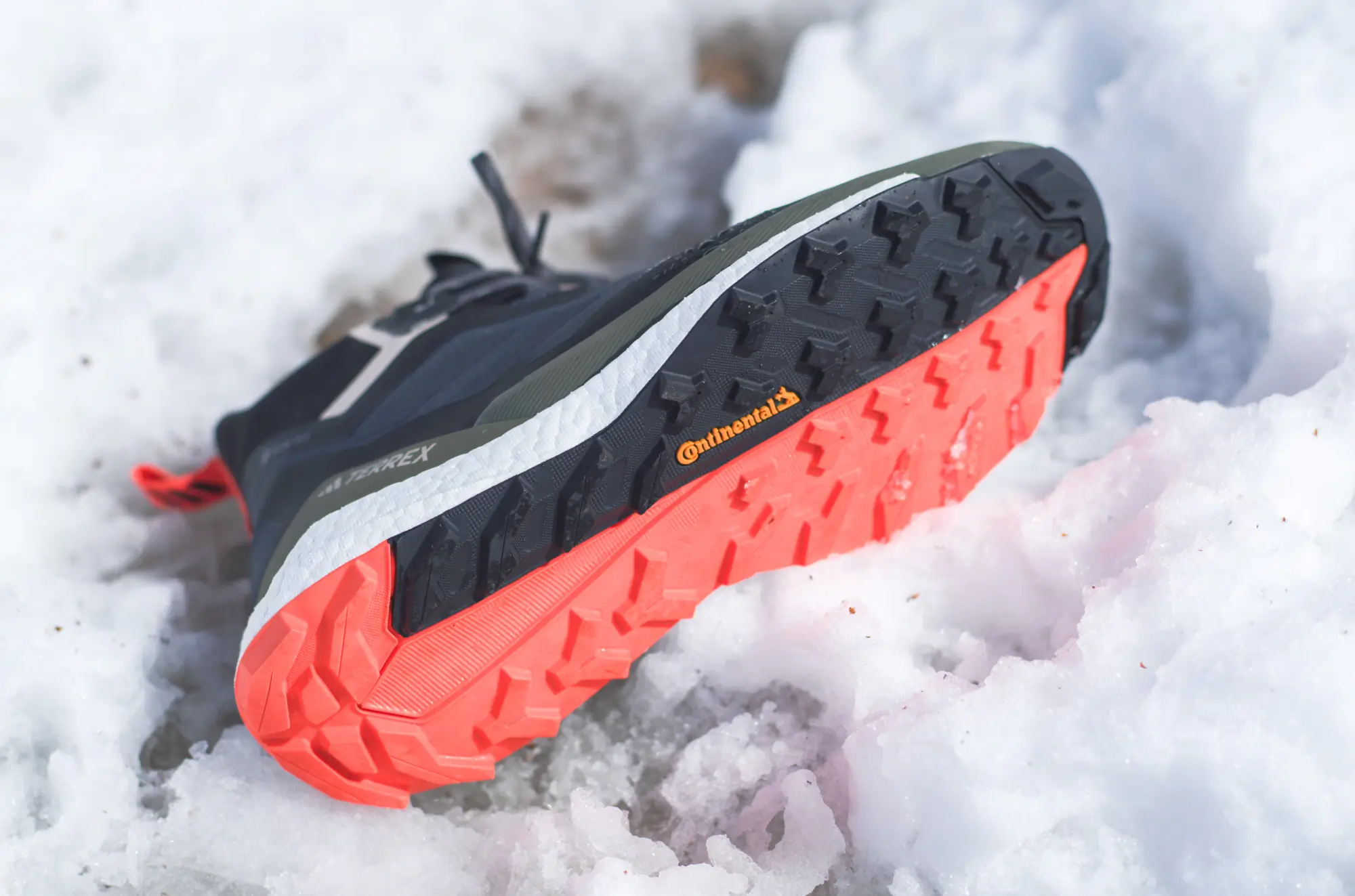



Now, let’s consider that this shoe is designed more for hiking than running. They are light, efficient, and grippy. It’s a good combination often found in trail runners.
But once we get to the upper, the comparison to trail runners ends. Here, you’ll find a taller form that wraps the ankle up to slightly beyond the lateral and medial malleolus. I’d compare them to a high-top sneaker or basketball shoe in height.
I tested a size 9.5 men’s, and they fit true to size with an average to slightly narrow forefoot width.
A High-Top Shoe for Hiking
This hiking shoe should offer modest support for trekking with light packs over rough trails. They are not a replacement for heavier boots when the mission calls for them, such as bushwhacking off trail, deep snow and mud, hunting, and mountaineering. But where they will thrive are the rugged trails in the mountains. I could see them as a great performer on trails like Colorado’s 4-Pass Loop.
They provide enough extra protection to keep feet dry when tromping through many puddles in cool weather. But they’re not so heavy as to slow you down as much as heavier boots. But as they do have a GORE-TEX membrane, they’ll probably be too warm for hot weather. TERREX does make a non-GORE-TEX version, which may be a better choice in warmer and dryer conditions.
This is a short review; I’ve only had these for about a week. But I’m already considering these as a contender for my upcoming Tour du Mont Blanc hike this summer. The TERREX Free Hiker GORE-TEX 2.0 has great potential for fast hiking and performs surprisingly well as a cold-weather running shoe in a pinch.




Will it replace my running shoes on my daily training runs? Definitely not.
But when the weather gets so gnarly that most running shoes will fill with water and snow, I may reach for these hiking shoes for their extended height and weather resistance. And amazingly, they allow you to move quickly through nasty weather.
